How to Remove FCO From Your Credit Report
based in Beltsville, Maryland, but they also have call centers in the Philippines. FCO has been in business for over 35 years, and has managed to get the worst possible rating from the Better Business Bureau—an F on a scale from A to F. Keep reading to learn how FCO can damage your credit score, and how you can fight back.
Who is FCO?
People often confuse FCO with FICO, which is probably intentional on their part—FICO is a legitimate credit scoring agency, the gold standard for scoring in the US. Your FICO score is the one that lenders look at the most to determine your creditworthiness. , meaning they go after people who owe money to another business. In the case of FCO, they work with multi-family housing companies for back rents and fees, targeting these specific commercial property demographics:
- Military housing
- Senior and assisted living accounts
- Student housing and student accounts
You can contact them here:
| Phone Number | (877) 324 - 7959 |
| 2304 Baltimore Ave. Suite #E
Beltsville, MD 20705 | |
| Pay Online | Payment Portal |
Know Your Rights With Debt Collectors
First, you should know your rights when you're dealing with third-party debt collectors. The FDCPA, or Fair Debt Collection Practices Act, covers every consumer in the US. These are the main points of the Act. A debt collector cannot:
1. Call you at "inconvenient times"—between 9 pm and 8 am
2. Call you at work
3. Threaten you with jail or asset seizure
4. Threaten to harm you, your property, or your reputation
5. Use profanity
6. Communicate with your family and friends about your debts
7. Pretend to be law enforcement or other officials
Right off the bat, they must identify themselves and the company they represent. If —or any other debt collector—violates any of these rules, you can report them to the FTC ( Federal Trade Commission), CFPB, and your state's attorney general.
How Often Can FCO Call Me?
Debt collectors also have rules about how often they can try to contact you. FCO can't attempt to contact you more than 7 times in a 7 day period—that is, no more than once a day. If you do communicate with them, they can't contact you again for 7 more days. Unfortunately, this only really applies to phone calls. They can continue to blow up your phone with texts, emails, and via social media.
FCO's Responsibility to You
When you speak with an FCO representative, they have 5 days to send a written validation notice that confirms the following:
- Name of the creditor
- Amount of money owed
- Notice that you have 30 days to dispute the debt
- Next steps for you to take
Don't Ignore a Collections Agency
Your rights as a consumer do not supersede your obligations to pay your debts. The best thing you can do is know your rights, speak to FCO, and try to work out a payment plan. You may be able to work directly with the creditor, cutting FCO out altogether.
FCO has been Sued for violating the Fair Debt Collection Practice Act
If you have received a letter, phone call, or text from FCO, Tenant Watchdog—a website that reviews collection agencies—recommends that you be very careful when you speak or communicate with them. FCO has been sued by the Consumer Financial Protection Bureau (CFPB) for deceptive practices—telling people they owe a certain debt, without a reasonable basis to confirm that debt. In other words, they harass people they think owe money, without any proof. They also try to collect time-barred debts—the statute of limitations for suing for a certain debt has expired.
What About the Pay for Delete Option?
FCO and other debt collectors offer consumers an option called "pay for delete"—you pay off the collection, and they delete it from your credit report. There's one problem here—they have absolutely no control over what the credit bureaus report. The best they can do is make sure the collection shows it's paid with a zero balance. They can agree to pay for deletion, but ultimately, that has no bearing. The collection will still show up on your credit report for seven years after the date of the first delinquency.
It's Not My Debt—Now What?
If FCO is contacting you in error, let them and the credit reporting agencies (Equifax, Experian, and TransUnion) know that you are disputing the debt. You will need to provide proof that you don't owe the money.
DoNotPay Can Help You Figure Out Your Best Course of Action
Dealing with any collection agency is stressful, and it can be complicated. Their agents are trained to intimidate and scare you, and FCO is one of the worst. They don't care if they break the law because they figure you're too scared to report them. DoNotPay has the know-how to communicate with FCO on your behalf and determine the best way to manage the debt and collection. Here's how, and you can do it at your convenience, any time.
- Search Clean Credit Report on DoNotPay.
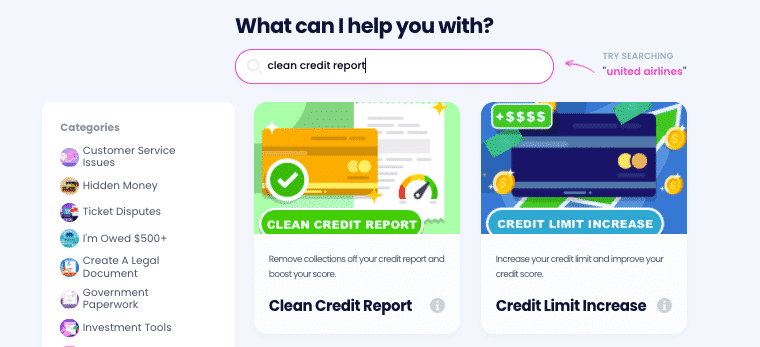
- Prepare a recent copy of your credit report that you can use as reference.
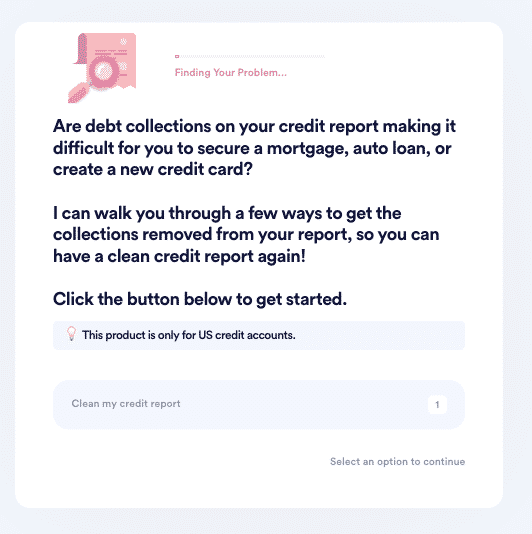
- Let us guide you through the 4 potential options:
- If you've already paid off your debt, we'll help you file a Goodwill Removal Request to get it removed.
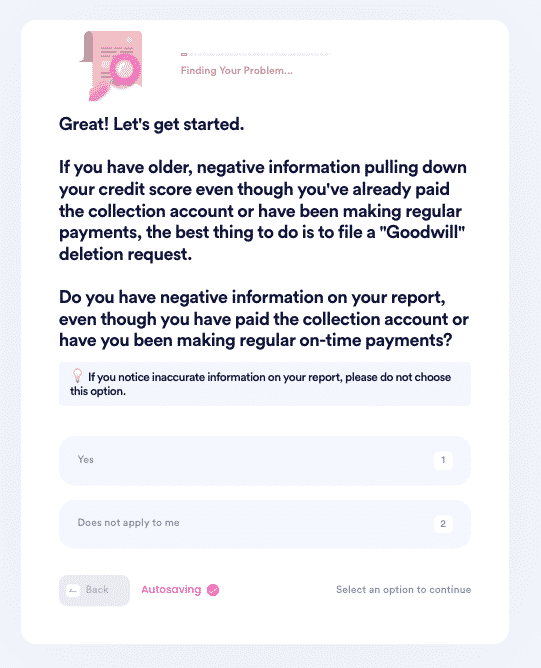
- If you notice any errors in your report (we have a list of common errors you can use!), we'll help you file a credit dispute to the creditor or major credit bureaus.
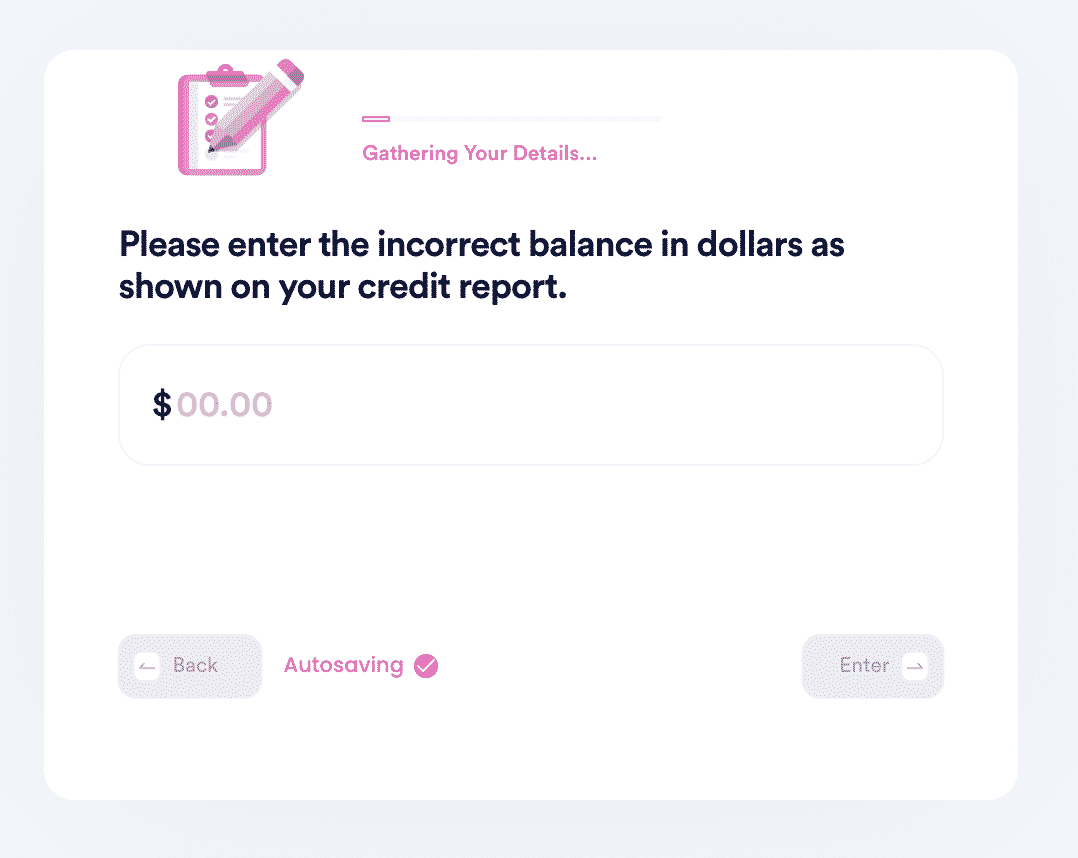
- If there are no errors, we'll check if you're still eligible to file a debt validation request. If they can't validate your debt, they're required to remove it from your report and they can't collect it!
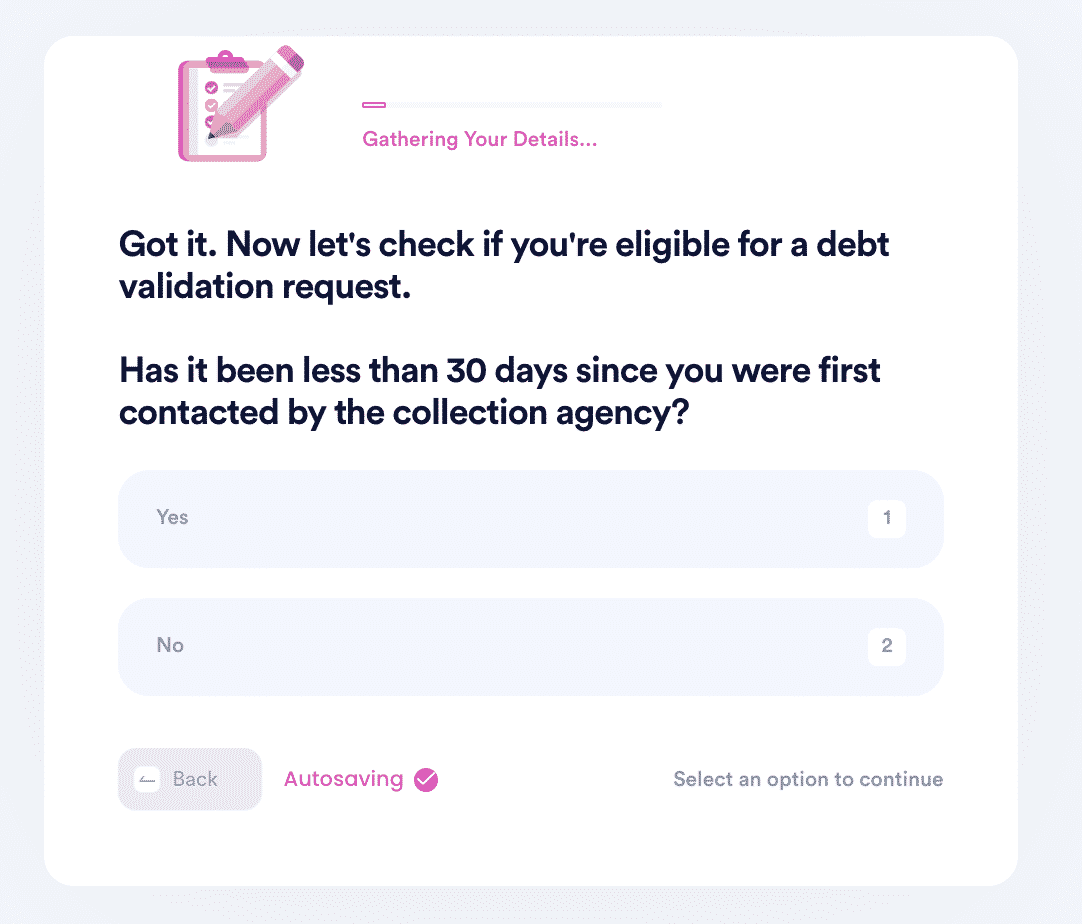
- Lastly, if none of the above options work, we'll help you file a pay-to-delete negotiation letter. You can customize the amount you are willing to pay in exchange for getting the item removed.
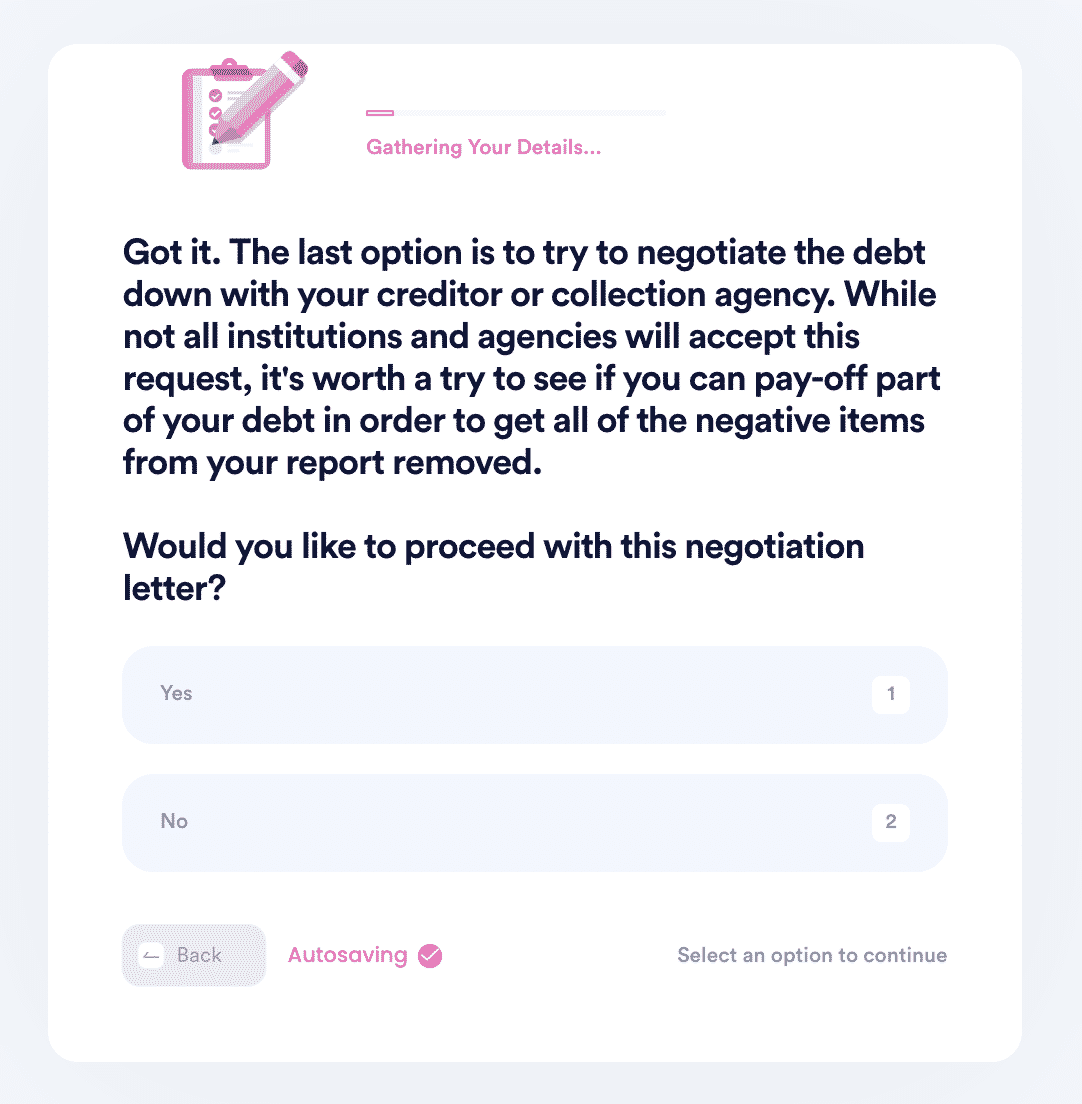
What Else Can DoNotPay Do?
We are here to help you navigate lots of problems, not just manage debt collectors. Our team can help you with writing a credit dispute letter, removing late payments from credit reports, increasing credit limits, paying bills, and even writing appeal letters for financial aid. You don't need to hire an expensive attorney to file routine paperwork; our AI attorneys can do it immediately and for a tiny fraction of the cost.
 By
By